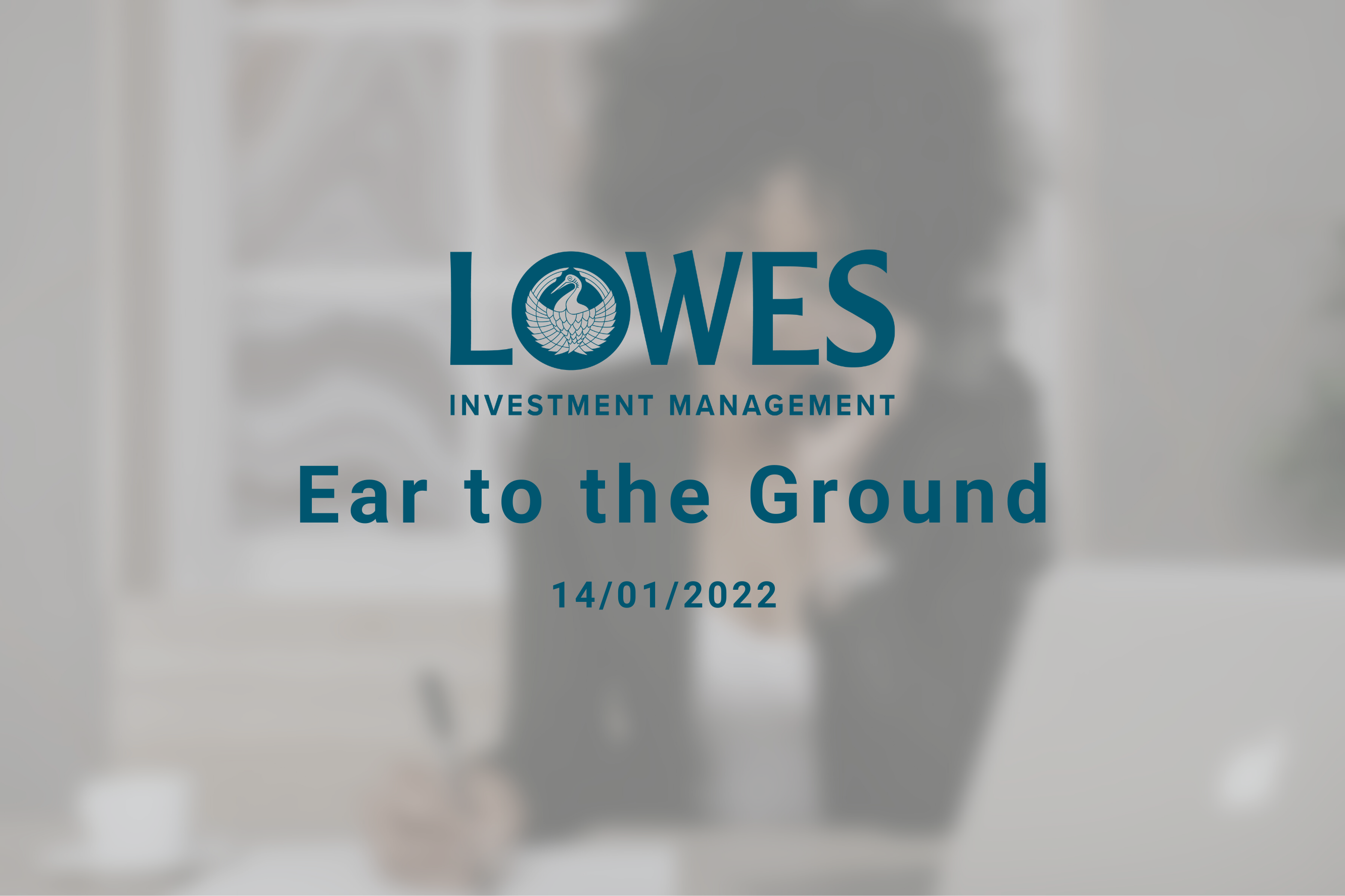Ear to the ground
14 January 2022

Inflation was back to taking centre stage this week with the release of the latest rate in the US. This came in at a rather eye-watering 7%, the highest seen since June 1982. This was the highest level seen since June 1982 but was in line with market forecasts. We still remain some way off the double digit highs seen in the 1970’s but the level of inflation we are currently seeing is undoubtedly taking some getting used to.
Core inflation, which excludes the more volatile items of food and energy, came in at 5.5%. Core inflation excluding Covid sensitive areas, which includes lodging away from home, used cars, car rentals, airfares, televisions, toys and PC’s, came in at a lower 3.9%, but has still posted a sharp increase since 2021. Whilst this rightly deserves coverage, it is important to remember however that it is rather difficult to survive without food and energy. Figures from the US Bureau of Labour Statistics show that in 2020 spending on food accounted for between 11.2% and 13.9% of household expenditure, depending on household status.
Despite this high print, the US 10 year Treasury yield has shown little reaction this week. After closing on Friday at 1.76% it trades at a little over 1.75% at the time of writing. In terms of equity markets, this week so far we have seen value outperform growth, continuing a trend which we have seen in the year to date. We have also seen weakness in technology stocks, with the Nasdaq reversing all of its weekly gain and then some in Thursdays trading session. Technology stocks however, in particular non-profitable technology companies, have been under pressure early 2021, but there has been a recent sharp fall. Indeed non-profitable technology companies as a collective appear to be following a similar path to that shown by the Nasdaq Composite between 1999 and 2001.
The rise in bond yields and the potential for rises in interest rates continues to focus investors’ minds on valuations. Here there is certainly divergence across markets, based on price relative to 10 year average earnings. Here the US continues to trade at a very high multiple not only relative to other markets, including emerging markets and developed markets excluding the US, but also relative to its own history. The UK, meanwhile, continues to trade at a significant discount to the MSCI World based on an average of the price to earnings, price to book and price to dividend yield ratios.
Investors are an emotional bunch of people and when markets show the current levels of differentiation that they are, or there is potentially an inflexion point on the horizon, even more so. Some believe that to be a good investor you need to show little emotion. Bill Miller disagrees, and I for one agree with him. To quote Bill Miller himself, "Great investors are not unemotional, but are inversely emotional – they get worried when the market is up and feel good when everyone is worried.”
This article is for information purposes only and should not be construed as advice. We strongly suggest you seek independent financial advice prior to taking any course of action.
The value of this investment can fall as well as rise and investors may get back less than they originally invested.
Past performance is not necessarily a guide to future performance.
The Fund is suitable for investors who are seeking to achieve long term capital growth.
The tax treatment of investments depends on the individual circumstances of each client and may be subject to change in the future. The above is in relation to a UK domiciled investor only and would be different for those domiciled outside the UK. We strongly suggest you seek independent tax advice prior to taking any course of action.
Subscribe Today
To receive exclusive fund notifications straight into your inbox, please complete this form.